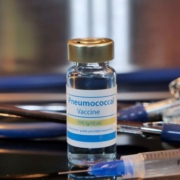Abbott agreed to enter into a consent decree with the U.S. Food and Drug Administration related to the company’s Sturgis, Mich., infant formula plant. The decree is an agreement between the FDA and Abbott on the steps necessary to resume production and maintain the facility. This does not affect any other Abbott plant or operation. The decree is subject to court approval.
The U.S. Food and Drug Administration extended the Prescription Drug User Fee Act date for Merck’s supplemental Biologics License Application (sBLA) for Vaxneuvance, a pneumococcal conjugate vaccine intended for preventative use in infants and children.
The latest results from Sanofi and AstraZeneca’s Phase III trial for nirsevimab demonstrate the vaccine’s ability to protect all infants from the respiratory syncytial virus (RSV) with a single dose.
Research Roundup: Vitamin D Deficiency and Severe COVID-19
Bispecific Antibody, Bleeding Disorders, Brain, COVID-19 Studies, COVID-19 Vaccinations, Delta Variant (B.1.617.2; India), Eating, Infants, Israel, Massachusetts General Hospital, Metastatic cancers, National Institutes of Health, Omicron (B.1.1.529) (South Africa), Pregnancies, Proteins, R&D, Severe Covid-19, University of Arizona Health Sciences, Vitamin DResearchers at Bar-Ilan University and the Galilee Medical Center identified an association between vitamin D deficiency and severity and mortality of COVID-19.
Many babies of mRNA-vaccinated moms have antibodies at 6 months; Moderate COVID tied to higher childbirth risks
Birth, Covid-19 Data, COVID-19 Infections, COVID-19 Studies, Eli Lilly, Infants, JAMA, Monoclonal Antibodies, Mothers, Pregnancies, R&D, Regeneron Pharmaceuticals, Severe Covid-19, United StatesAt 6 months of age, babies born to mothers vaccinated against COVID-19 during pregnancy are more likely to have antibodies against the virus in their blood than babies born to unvaccinated mothers who were infected while pregnant, a small study suggests. Additionally, contracting COVID-19 late in pregnancy is linked with a higher risk for obstetric complications, new data suggest.
With two assets licensed from Takeda, Oak Hill Bio launched with a focus on developing therapeutics for patients and extremely preterm infants who are suffering from rare autoimmune diseases.
Coronavirus infection during pregnancy does not appear to affect infants’ brain function, but the pandemic itself may be having an impact, a study published on January 4 in JAMA Pediatrics suggests. Additionally, new laboratory research found the coronavirus can directly damage the kidneys by initiating a cascade of molecular events that leads to scarring.
Global biopharmaceutical firm Merck announced that the company’s Phase III trial for a potential treatment for pneumococcal disease in infants succeeded in meeting key safety, tolerability, and immunogenicity endpoints in the first 30 days.
Swiss drugmakers Roche and Novartis each won European approval for drugs on March 30 in a sign that the rival Basel-based companies are increasingly competing for the same patients.
Swiss drugmaker Roche said 59% of infants with the severest form of spinal muscular atrophy could sit for at least five seconds after getting the company’s medicine Evrysdi for two years, according to trial data, up from 33% after a year of treatment.









